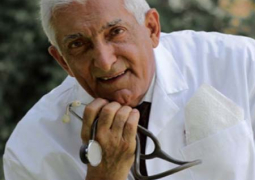The governing board comprises a Medicine Control Agency and a Pharmacy Council. While the Council is aimed at controlling the sales and regulation of drugs in the country, the Agency is expected to look into the quality of drugs and medicine products to ensure authorization of any medicines that enter the country.
This is a step in the right direction and, in fact, is long overdue, as stated by the Minister of Health at the inauguration of the board.
“This is the greatest landmark that has happened in the development of pharmacy in this country,” health officials at the inauguration of the board stated.
“A lot has changed; today there are schools training pharmacists in this country. And the number of pharmacies in this country has also greatly increased and many are in training.”
This body that has been created is, therefore, expected to work very hard to ensure the highest standards of pharmacy practices are delivered in this country.
It is also very essential that the sale of fake or counterfeit and substandard drugs is stamped out of this country, as such drugs cause serious harm to our lives and the health of our economy.
While counterfeit drugs are deliberately and fraudulently mislabelled with respect to identity and/or source, substandard drugs are genuine drug products which do not meet the quality specifications set for them.
These problems are, therefore, expected to be addressed with the setting up of this new medicine governing board in the country.
Poor-quality medicine is unacceptable in this country, because it increases morbidity and mortality via a lot of fatal diseases it creates.
It is very essential to note that the impacts and problems of poor-quality medicines and drugs include engendering of drug resistance and loss of medicine efficacy;increased mortality and morbidity; loss of confidence in health systems and health workers;economic loss for patients, their families, health systems, and the producers and traders in good-quality medicines; adverse effects from incorrect active ingredients; waste of enormous human effort and financial outlay in development of medicines, optimising dosage, carrying out clinical trials, discussing policy change, and manufacturing medicines, and increased burden for health workers, medicine regulatory bodies, customs officials and police officers.
For these and other potent reasons to our health and economy, it is prudent and vital that medicine and drug-related activities in this country are properly regulated and monitored.
“Medicine is a science of uncertainty and an art of probability.”
William Osler
Read Other Articles In Article (Archive)

How dangerous is smoking and how much affect smokers in The Gambia?
Apr 25, 2017, 12:09 PM

Alex Sanchaba host New Town in Gunjur Nawettan qualifiers playoff
Aug 7, 2015, 10:24 AM



